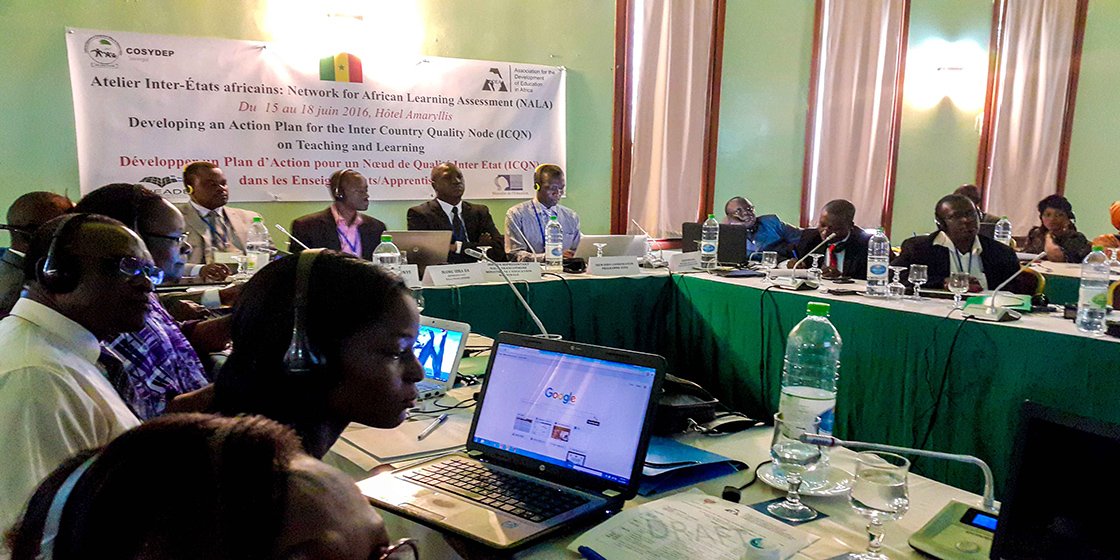ADEA ICQN on Teaching and Learning & Network for African Learning Assessment break ground in Saly
15th – 18th June, Saly Portudal, Senegal - Thirty participants at the inaugural planning meeting of the Inter-Country Quality Node on Teaching and Learning (ICQN-TL) and the Network for African Learning Assessment (NALA), agreed to work towards ensuring that in five years’ time, “a critical mass of expertise in teaching, learning and assessment is developed and data consistently used to improve teaching and learning”.
The Association for the Development of Education in Africa (ADEA) and the Ministry of Education of Senegal jointly organised this USAID-funded meeting as a follow up to the launch of ICQN- TL in Kigali in February 2016, led by Rwanda’s Ministry of Education. The meeting also followed the final one organized by the Learning Metrics Task Force (LMTF) in Livingstone, Zambia in February 2016 where ADEA took over the coordination and leadership of the African Learning Champions, renamed as the Network for African Learning Assessment (NALA). The planning meeting held in Saly aimed to put in place relevant governing structures and develop a plan to guide the work of both the ICQN and NALA.
Education stakeholders comprising member countries of Burkina Faso, Cote d’Ivoire, Kenya, Rwanda, Senegal and Zambia; regional assessment networks SACMEQ and PASEC; entities working in the area of citizen-led assessments such as COSYDEP and TWAWEZA; development cooperation partners UNICEF and the Brookings Institution; and ADEA shared valuable experiences. These included the benefits and challenges of national and citizen-led assessments, the harmonization of learning assessments through a common indicator framework and the role of assessments in promoting regional integration.
Using theory of change process and working in two groups, Francophone and Anglophone, the participants identified five major priority areas: i) Stock taking of current country situations (i.e. baselines, situation analysis); ii) Development of a monitoring and evaluation framework; iii) Use of data for decision making; iv) Use of ICT in learning assessments; and v) Creation of an African Institute of Learning Assessment. The meeting further developed, under each priority area, activities to be implemented with corresponding strategies, outputs, indicators and timelines in a consolidated work plan. The Association for the Development of Education in Africa (ADEA) will coordinate the development of an integrated strategic plan, which will be submitted to the Bureau of Ministers. Lastly, ICQN and NALA member countries were also encouraged to market the plan – once finalized and approved – to other countries and partners.
For more information, contact Shem Bodo, ADEA Senior Programs Officer (s.bodo@afdb.org); Emmanuel Muvunyi, ICQN-TL Coordinator (emuvunyi@sfar.gov.rw); and Mame Ibra Ba (mameibra2011@hotmail.fr) and Angel Kaliminwa (kaliminwaa@yahoo.com), the NALA focal points for Senegal and Zambia, respectively.
